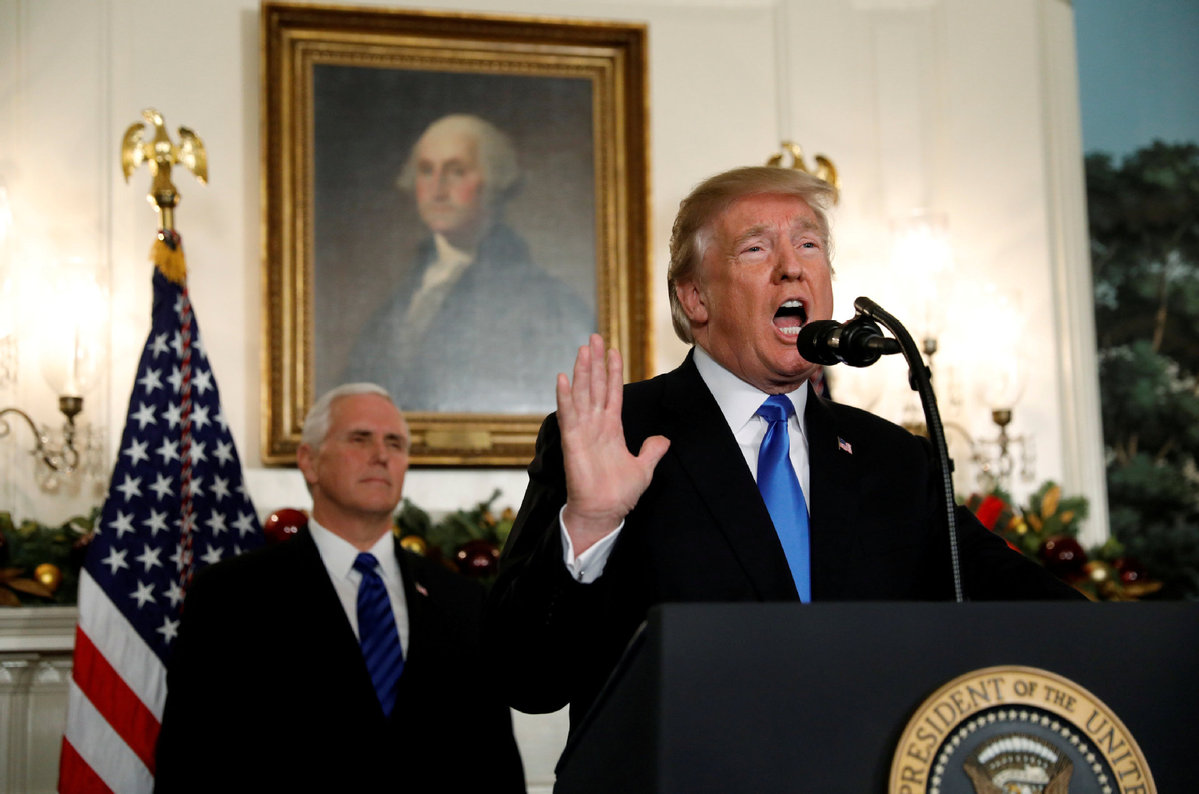US policy risks global instability
China Daily | Updated: 2018-01-23 11:10

WASHINGTON - Endorsed by the "America First" strategy, the US foreign policy of the Donald Trump administration has stirred up controversy and unrest around the world.
As tension lingers on the Korean Peninsula as well as the Middle East, the doctrines the Trump administration will follow regarding international affairs in his remaining years in office will be vital to global stability and development.
There were mounting reports in the past months that the Trump administration was weighing attacks to rid Pyongyang of its nuclear program.
A limited and pre-emptive "bloody nose" strike was reportedly discussed seriously by the United States military, though many have warned of the risk of igniting an all-out war.
US policymakers must face the facts, said Michael Fuchs, an expert on US foreign policy.
"There are no acceptable US military options involving a first strike, given the inevitable retaliation and mass casualties that would follow," Fuchs, senior fellow at Center for American Progress, a Washington-based think tank, wrote in Foreign Affairs magazine.
An all-out war on the Korean Peninsula would be catastrophic beyond any imagination.
Even if the Democratic People's Republic of Korea uses only its conventional munitions, casualties were estimated to range between 30,000 and 300,000 in the first days of fighting, according to a report compiled by US Congressional Research Service, gathering views of six experts on national security and Asian affairs.
In either scenario, we lose even if we "win" in a strictly military sense, said US lawmakers Ruben Gallego and Ted Lieu.
A "freeze for freeze" agreement, in which Pyongyang stops missile and nuclear tests and Washington stops military exercises with Seoul, could help get both sides to the negotiating table, according to Fuchs.
The Six-Party Talks, which included the DPRK and the US, along with China, Japan, Russia and the Republic of Korea, could be revived as a formal coordination mechanism to denuclearize the Korean Peninsula, Fuchs said.
"But the real work would have to be done bilaterally between Washington and Pyongyang," he added.
























